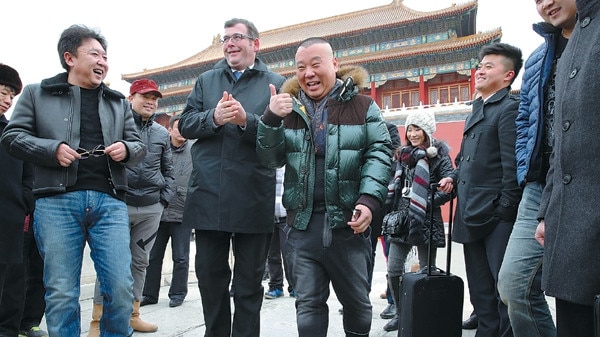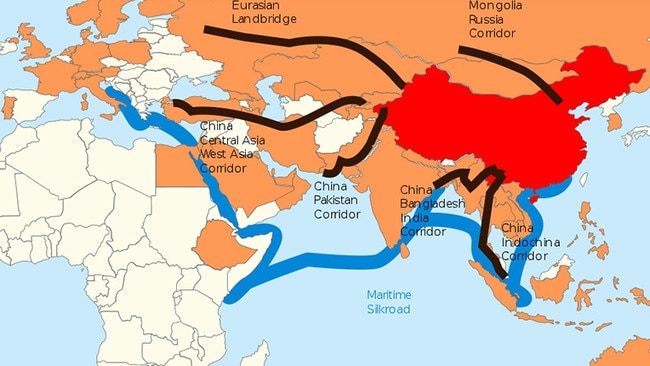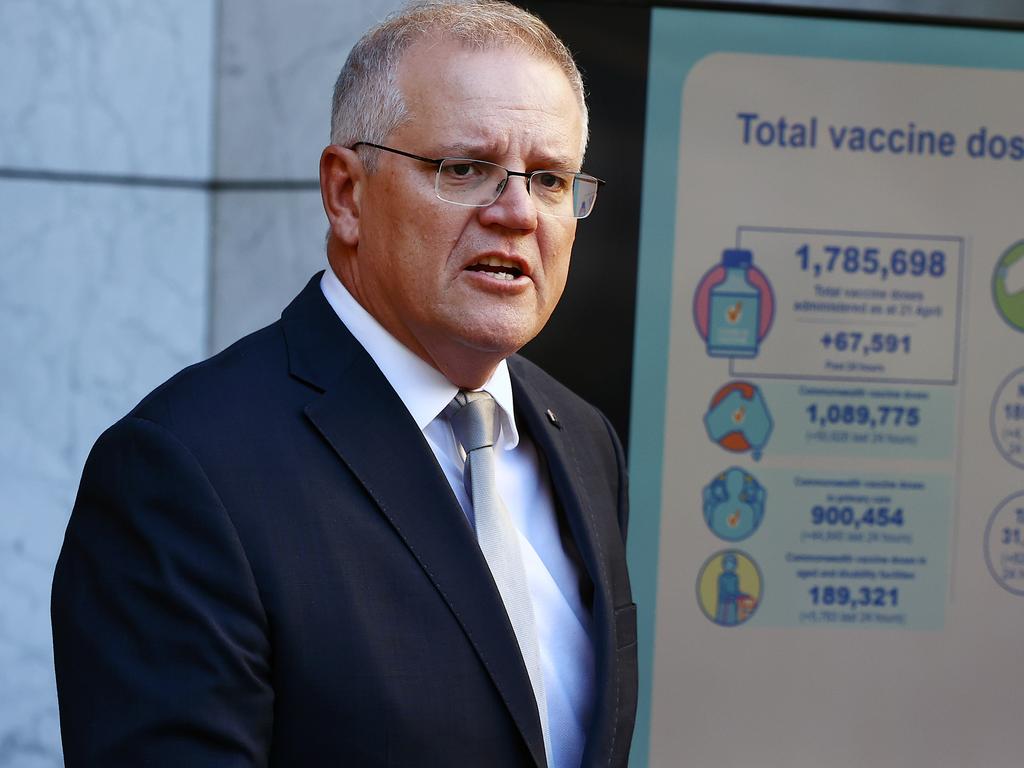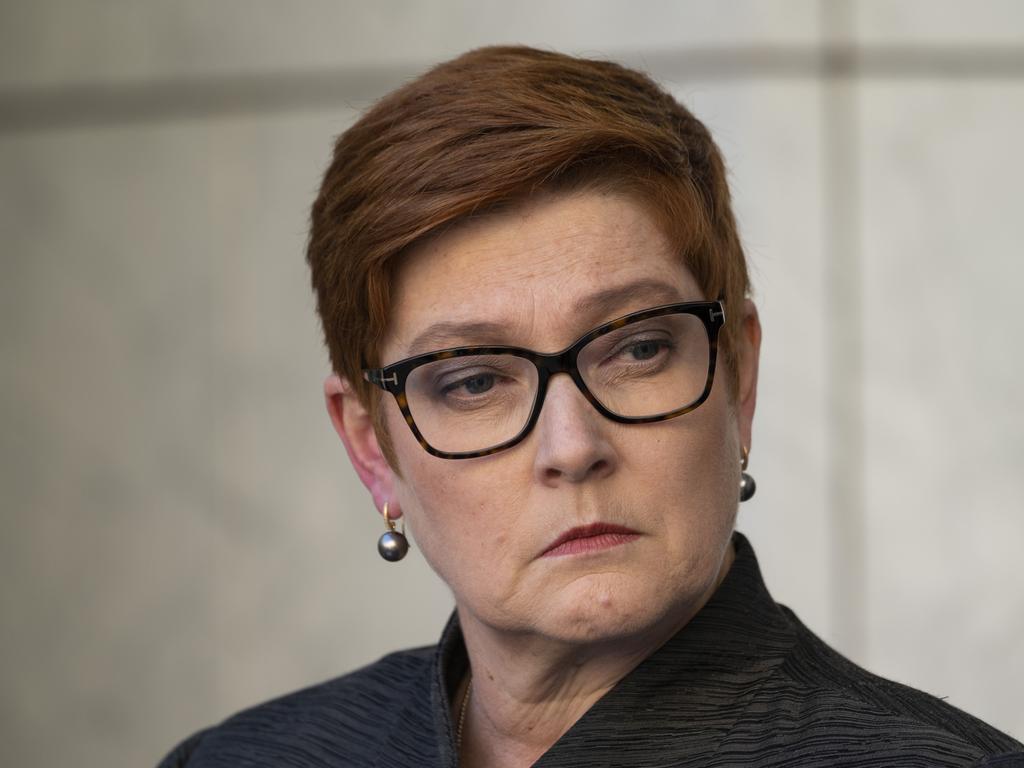
“Australian business leaders have for some time been preparing for more challenging times ahead,” the national president of the Australia China Business Council, David Olsson told the Australian on Thursday.
He said Australian companies which exported to China had already been moving to diversify their overseas markets while also continuing to engage with their Chinese trade partners.
The Chinese embassy in Canberra released a strongly worded statement on Wednesday saying that it would further damage the bilateral relationship.
While the move is being seen in the Australia-China business circles as yet another blow to political relations with potential retaliation ahead, the Council is publicly moving to play down the importance of Payne’s move saying it was “not unexpected” in the light of recent changes.
“In the context of a rapidly changing geo-economic landscape, the decision to terminate the BRI memorandum of understanding and agreement is not unexpected, either here in Australia or indeed in Beijing,” Mr Olsson said.

“A domestic tussle over states’ rights is of little interest to Australian business (or to our ACBC members),” he said.
“They prefer to look beyond the politics of BRI and focus on the genuine commercial opportunities that will emerge from infrastructure investments across the Indo-Pacific region.”
Mr Olsson said Australian business was “agnostic” about the Belt and Road Initiative which has largely been focused around infrastructure deals by China with third world countries.
“Their focus is on commercial opportunities,” he said of Australian companies doing business with China.
Mr Olsson said Australian companies were already “responding” to the prospect of challenges ahead in the China trading relationship.
“Some are pursuing market diversification strategies already, but many understand the importance of the China as a trade partner and provider of capital and are actively developing strategies to ensure they remain connected and engaged,” he said.
Action by China over the past year has already killed the lucrative $2 billion plus markets for Australian wine and barley in China while exports of coal, timber, beef, and cotton have also been hit by non tariff trade actions which have cut back their China exports.

Australia’s Ambassador to China, Graham Fletcher, recently warned Australian companies doing business with China that they could find themselves subject of trade blockages in China for political reasons.
James Laurenceson, the director of the Australia China Relations Institute (ACRI) at Sydney’s University of Technology, told a seminar on Thursday that Australia could expect to see some reaction from the Chinese in response to the move.
“We can expect to see some response from China to this news,” he told a seminar organised by the Australia China Business Council.
“What was cancelled was a non legally binding agreement that didn’t commit the Victorian Government or the federal government to doing anything,”
“Canberra could have allowed it to lapse and not approve any new agreements.
“But, instead, it chose to blow it up and send a signal to Beijing.”
He said the Chinese government would see the move as a further shift in the federal government’s position on the BRI.

“China wont miss that the Australian government position on this has shifted,” he said.
Mr Laurenceson said the secretary of the Department of Foreign Affairs, former Ambassador to China, Frances Adamson, had attended the second Chinese government forum on the BRI in Beijing in 2019.
He said Adamson had said at the time that her attendance showed “reflected a willingness” by the Australian Government to engage with the BRI” and that the Prime Minister “welcomed the contribution that the BRI could make towards meeting the infrastructure needs of the region”.
But he said there had been a shift in attitude last year with Prime Minister Morrison saying that Australia did not recognise the BRI and that he saw it as contrary to Australia’s national interest.
The Chinese embassy in Canberra released a statement expressing its “strong displeasure and resolute opposition” to the move.
“The BRI is an initiative for economic co-operation, which follows the principle of extensive consultation, joint contribution and shared benefits, and upholds the spirit of openness, inclusiveness and transparency,” a spokesman said.
“It has brought tangible benefits to the participating parties. The BRI co-operation between China and the Victoria state is conducive to deepening economic and trade relations between the two sides, and will promote economic growth and the wellbeing of the people of Victoria.”
“This is another unreasonable and provocative move taken by the Australian side against China.
“It further shows that the Australian government has no sincerity in improving China-Australia relations.
“It is bound to bring further damage to bilateral relations, and will only end up hurting itself.”








Australian companies doing business with China are bracing themselves for tougher times ahead in the wake of the move by Foreign Minister Marise Payne to tear up Victoria’s Belt and Road agreement with China.